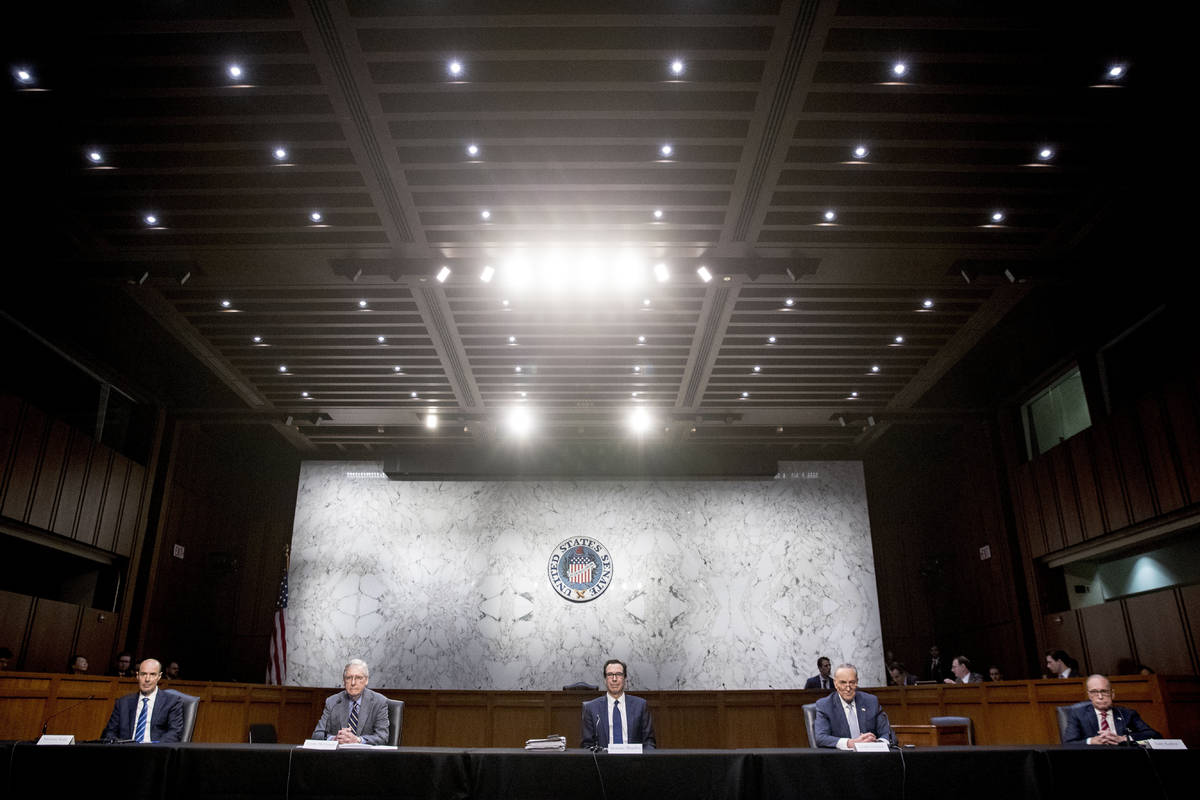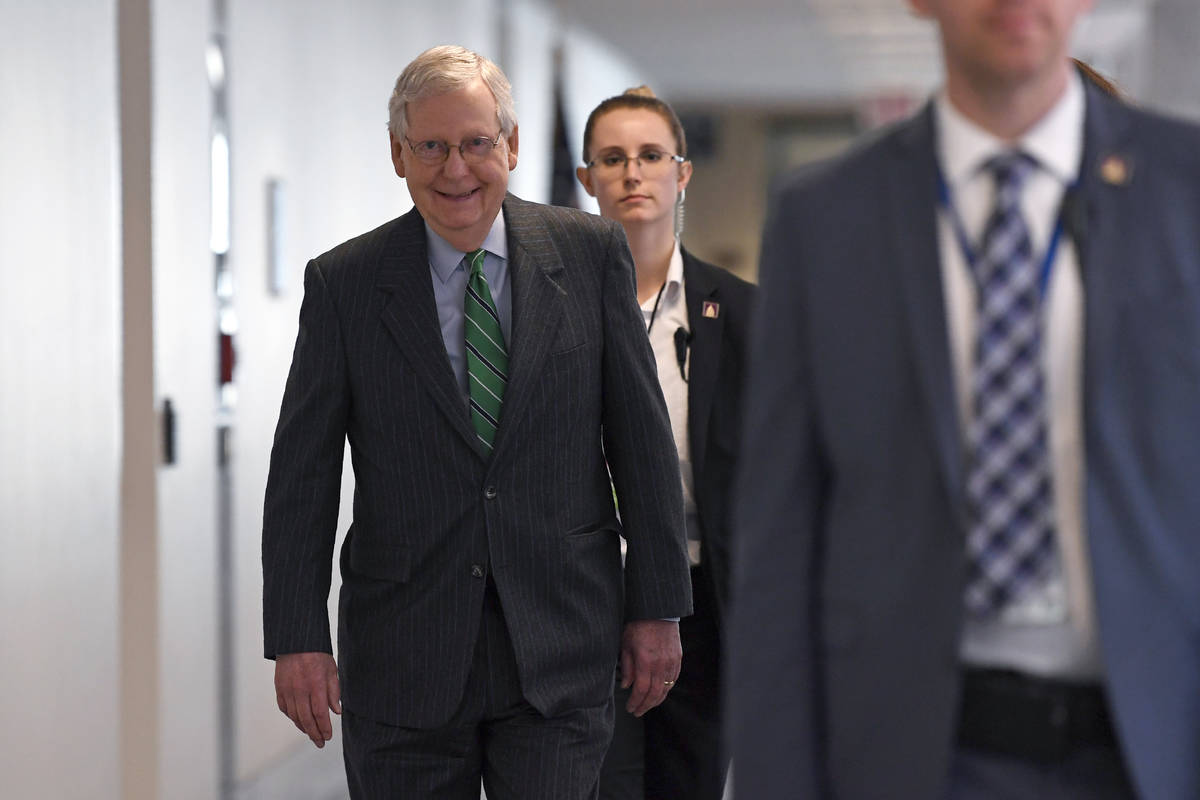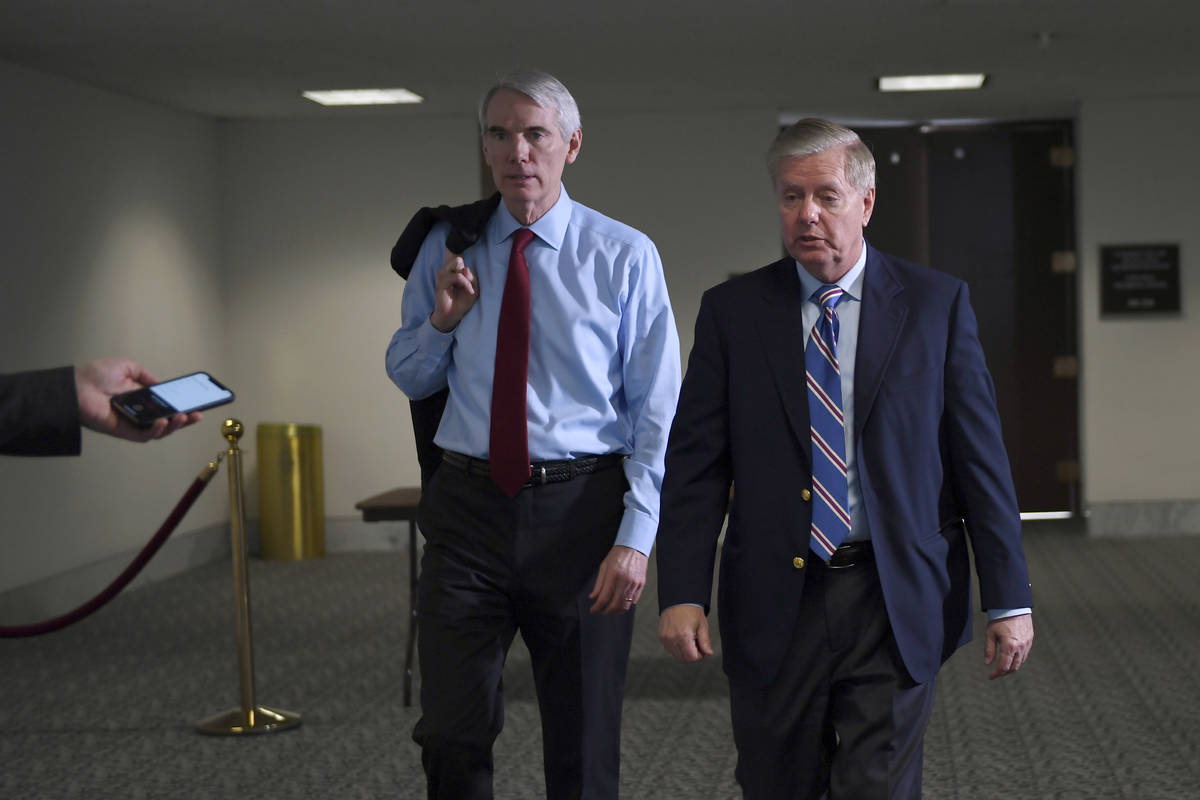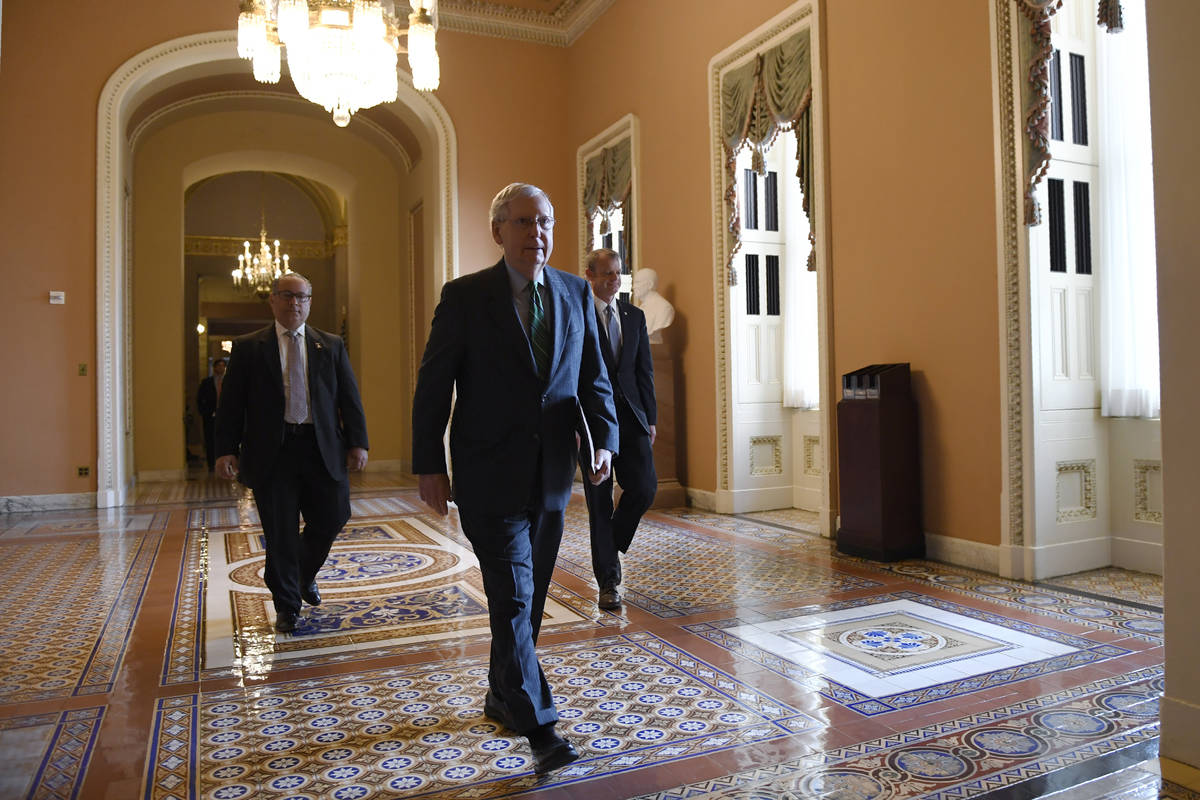Closed-door negotiations begin on $1T-plus economic rescue
WASHINGTON — Treasury Secretary Steven Mnuchin and Trump administration officials descended Friday on Capitol Hill to launch high-stakes negotiations with Senate Republicans and Democrats racing to draft a $1 trillion-plus economic rescue package amid the coronavirus outbreak.
The closed-door convening is the biggest effort yet from Washington to shore up households and the U.S. economy as the pandemic and its nationwide shutdown hurtles the country toward a likely recession. Mnuchin wants Congress to vote by Monday.
“We want to lay out the need for urgency and quick action,” said Eric Ueland, the White House director of legislative affairs, entering the morning session. “The American people expect action.”
With Senate Majority Leader Mitch McConnell on one side and Senate Democratic Leader Chuck Schumer on the other, Mnuchin took the center seat for the rare high-level talks.
Despite the urgency to act, talks are likely to hit challenges over different opinions on how best to swiftly push out aid.
McConnell laid out the Republican offer Thursday of direct payments to Americans, businesses and industry loans but Democrats said it does not go far enough to help ordinary workers and shore up the healthcare system.
Schumer vowed Friday as he entered the session that Democrats will “fight hard” for their priorities. “We need to work together quickly and do something big and bold to help the American people,” Schumer said.
The GOP leader’s effort builds on Trump’s request for Congress to “go big.”
‘Swift action as soon as possible’
“We need to take bold and swift action as soon as possible,” McConnell said Thursday, announcing his plan on the Senate floor.
The 247-page McConnell CARES Act puts the leader’s imprint on opening talks with Democrats in Congress as lawmakers prepare to work through the weekend to fast-track perhaps the most urgent legislative undertaking since the 2008 financial crisis.
McConnell’s plan proposes $1,200 direct checks to taxpayers, $300 billion for small businesses to keep idled workers on payroll and $208 billion in loans to airlines and other industries.
The negotiations are certain to encounter difficulties ahead, despite the pressure on Washington to act.
“We are beginning to review Senator McConnell’s proposal and on first reading, it is not at all pro-worker and instead puts corporations way ahead of workers,” said a joint statement from Schumer and House Speaker Nancy Pelosi .
The GOP leader’s plan aims to shore up households, businesses and the healthcare industry, which is bracing for an expected onslaught of patients falling ill from the virus that causes COVID-19.
$1,200 per individual
The one-time $1,200 stipends would be sent to individuals — $2,400 for couples — phased out at income thresholds of $75,000 for individuals and $150,000 per couple. Additionally, there would be $500 payments for each child.
Additionally, the McConnell bill would provide $300 billion to small businesses, with loans that would eventually be forgiven for employers who use them to meet payroll expenses.
To shore up industry, McConnell’s plan would provide $208 billion in loans and loan guarantees to distressed sectors, including $50 billion for commercial airlines, $8 billion for air cargo carriers and $150 billion for other eligible businesses, but those loans would have to be paid back.
Businesses would also be allowed to defer payment of the 6.2% employer payroll tax.
The proposal also includes a specific provision to allow the Treasury secretary to “participate in the gains,” through stock options or other financial instruments, of companies that receive federal aid.
Health care issues involved
At the same time, caring for the expected surge of sick Americans is a priority for Congress.
The McConnell proposal contains a raft of health care provisions — including permanent liability protection for the manufacturers of respirators and other desperately needed medical gear to handle the pandemic.
At the consumer level, McConnell’s bill would put into federal law the commitment from insurers that coronavirus tests will be cost-free to policy holders. Additionally, the bill requires coverage of coronavirus vaccines, at no cost to patients.
For the health care industry, the bill would establish a new Medicare payment for treating COVID-19 patients. It would suspend through the end of this year a 2% Medicare payment cut to providers under previously set budget restraints.
Pelosi and Schumer said in statement they looked forward to working with Republicans “in a bipartisan way to deliver for the American people as soon as humanly possible.”
The Democratic leaders said, however, their priority is to “make sure all workers are protected from the loss of a paycheck or that no family falls into financial ruin because of this pandemic.”
The Democratic leaders called on Trump to ramp up production of medical supplies and rapidly erect temporary field hospitals under new authorities he has invoked in the Defense Production Act.
Keeping paychecks flowing for idled workers as jobless claims skyrocket is a top priority for both Republican and Democratic plans emerging from Congress.
Crucial debate over checks
But how best to send direct payments to Americans — as one-time stipends, ongoing payroll support or unemployment checks — is a crucial debate.
Democrats have other ideas for ushering aid to Americans by pushing more money into the existing unemployment insurance system. Schumer called it “employment insurance” — which he characterized as “unemployment insurance on steroids.”
Some GOP senators panned the idea of direct one-time checks, preferring instead to use the federal dollars to keep workers who are asked to stay home on business payrolls.
“What I want is income, not one check,” said Sen. Lindsey Graham, R-S.C.
Industries line up for assistance
Meanwhile, industries of all kinds are lining up for help. The total price tag is sure to grow beyond $1 trillion, lawmakers said.
Trump has already signed into law a $100 billion-plus bill to boost testing for the coronavirus and guarantee paid sick leave for millions of workers hit by it. Earlier, Trump signed an initial $8.3 billion package from Congress.
For most people, the new coronavirus causes only mild or moderate symptoms, such as fever and cough. For some, especially older adults and people with existing health problems, it can cause more severe illness, including pneumonia.
The vast majority of people recover from the new virus. According to the World Health Organization, people with mild illness recover in about two weeks, while those with more severe illness may take three to six weeks to recover.





















